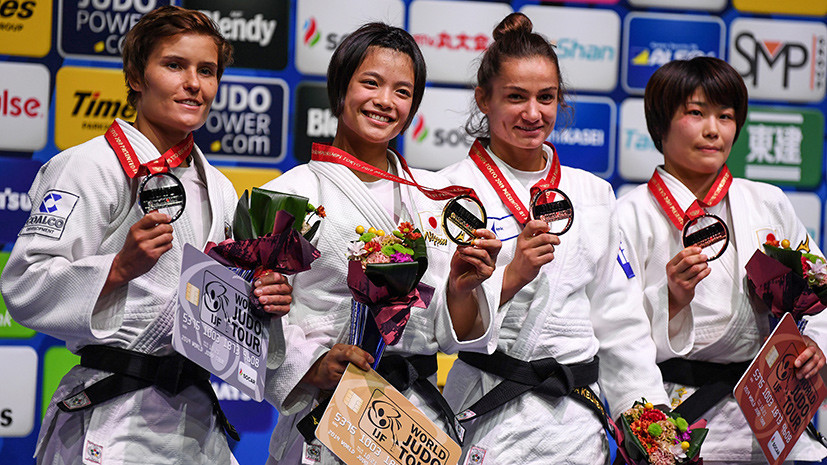A judo world championship is taking place in Japan these days - the last show of the best masters of this martial art before the Olympic Games in Tokyo. The tournament takes place in the most iconic place for judo - in the Budokan arena, which in less than a year will host the Olympic competitions for the second time in its history.
On the second day of the World Cup, the first medal went to the piggy bank of the Russian national team. It can be called, without exaggeration, historical. Natalya Kuzyutina won silver in the weight category up to 52 kg, becoming the first Russian athlete who managed to reach the finals. Before her, silver was won only by Elena Petrova in the USSR national team in 1989.
Kuzyutina is traditionally one of the contenders for medals in her discipline, but at major world competitions she has always been limited to bronze. She won awards of this dignity at the Olympic Games in Rio de Janeiro, as well as at the world championships in 2010, 2014 and 2017. A year ago, Kuzyutina also fought for the bronze of the world championship, but lost to Belgian Charlene van Snick in a consolation tournament.
This time, the Russian woman had to go a long way to the first World Cup finals in her career. First, she defeated the representative of Azerbaijan, Alexander Larisa Florian, with an ippon, then she passed the Olympic silver medalist Odette Dzhuffrida from Italy to meet again in the quarterfinals with van Snick and this time to return the rival.
In the semifinals, the 30-year-old athlete met with the first number in the world ranking Amandin Bouchard. The Frenchwoman spent her preliminary fights swiftly, winning ahead of schedule. In all cases, it turned out that Kuzyutina again had to fight for the bronze medal.
However, the Russian woman met with Bouchard already five times on the tatami and always got the better of her. This time, Kuzyutina managed to hold a reception, which was originally rated for ippon, but he did not bring victory - after a video replay the judges reduced him to waza-ari. The fight had to be continued, but Kuzyutina was able to keep the gained advantage and create a mini-sensation.
In the final duel, an experienced Russian woman confronted a real wunderkind of female judo Uta Abe from Japan. The 19-year-old athlete has not lost a single international fight since 2016 and managed to win the World Cup during this time. By the time of the meeting with Kuzyutina, Abe had won 41 matches in a row.
The Japanese won her own victory pretty quickly. Already at the 30th second, she carried out on Kuzyutina sode-tsurikomi-goshi - a throw through the thigh with pulling up the sleeve, which led to ippon. Abe became a two-time champion, catching up with her brother Hifumi, who on the same day won the bronze in weight up to 66 kg.
Kuzyutina, who occupied the sixth place in the world ranking before the tournament, became the silver medalist. Since 2013, second place at the World Championships has become the best achievement of Russian judokas, but only representatives of the men's team have necessarily taken it.
The remaining athletes from Russia to Tokyo have not yet been selected close to medals. In the weight category up to 66 kg, Mikhail Pulyaev was the favorite, having won silver three times at world championships. But in his first fight, the 32-year-old judoka lost to the Kyrgyz Arthur Te.
Also unsuccessful in weight up to 60 kg was the leader of the world ranking Robert Mshvidobadze. For him, Taiwanese judoka Yang Yongwei was an insurmountable obstacle. Before Kuzyutina’s speech, the best result of the Russians was the exit to the 1/8 finals of Irina Dolgova, who lost to Spaniard Laura Martinez in weight up to 48 kg.
The judo world championship in Tokyo will continue until September 1. Ten more sets of personal awards and one in the mixed team tournament remain unapproved. Denis Yartsev and Musa Mogushkov (up to 73 kg), Khasan Halmurzaev and Aslan Lappinagov (up to 81 kg), Niyaz Ilyasov (up to 100 kg), Daria Mezhetskaya (up to 57 kg) and Daria Davydova (up to 63 kg) have chances for medals. . All of them, in addition to places in the prize four, will compete for rating points for selection for the Olympic Games.

